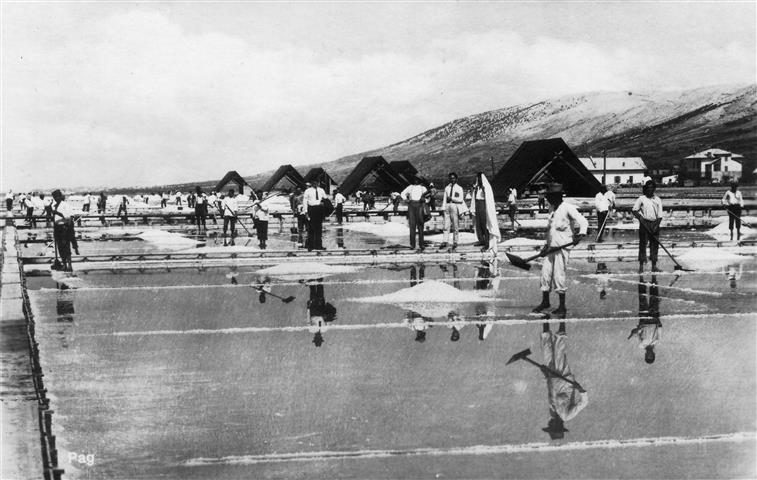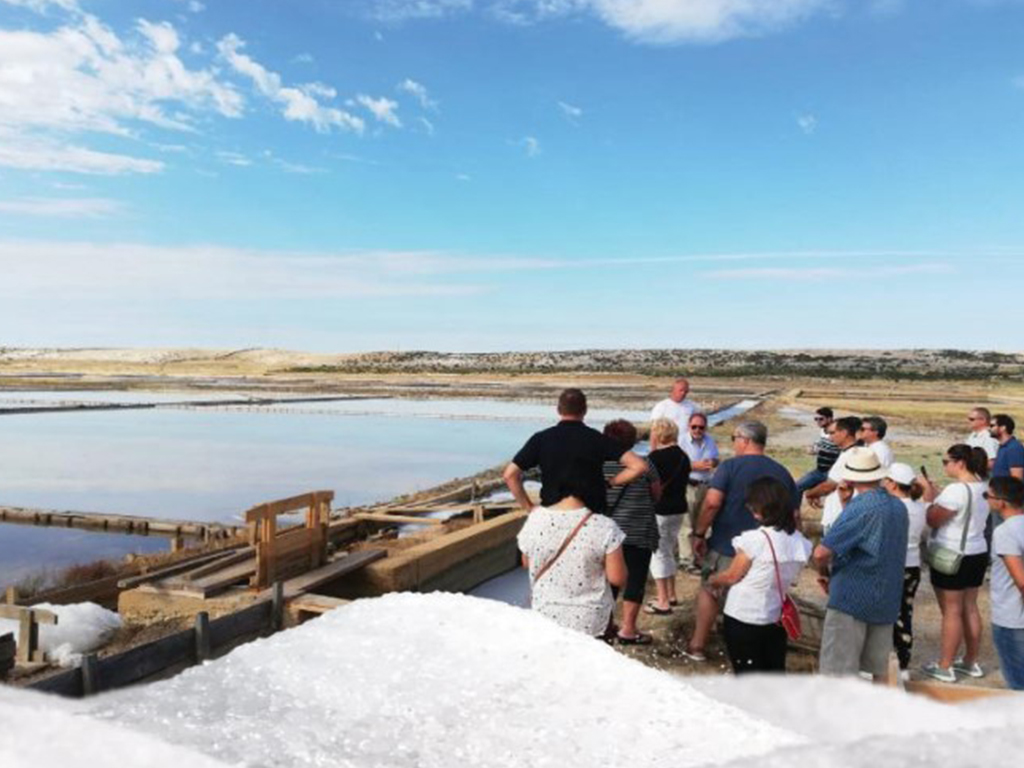.JPG)
The tradition of lace-making by needle-point has been nurtured in the town of Pag for centuries. Among the products of this special technique, Pag lace is the most valued and was thus registered in the UNESCO world heritage list in 2009.

We simply do not know precisely how long salt has been produced in Pag. Salt production in the Croatian lands was first mentioned in the book about Adriatic salt pans by Prof. Candide from the university in Naples, published in 1912.

Solana Pag od 01.06. za sve zainteresirane nudi edukativne radionice na otvorenom. Na radionicama možete saznati o povijesti Solane, načinu proizvodnje soli, nekada i danas, te o sastavu, kvaliteti i važnosti soli. Prilikom radionica se nudi uz kompetentno vodstvo razgled bazena, pratećih zapornica i kanala.

The Ethno-Gallery of the Družina Culture and Arts Association contains many valuable exhibits: typical Pag blouses adorned with Pag lace, older women’s and men’s folk attire, various items of apparel, antique parts of furniture and photographs that testify to life as it once was in Pag.

During Venetian rule, Pag’s citizens were exempt from participation in military campaigns due to the importance of salt production. However, Ivan Petar Kašić waived the exemption and participated in one of the most important battles in history: the Battle of Lepanto in 1571.

